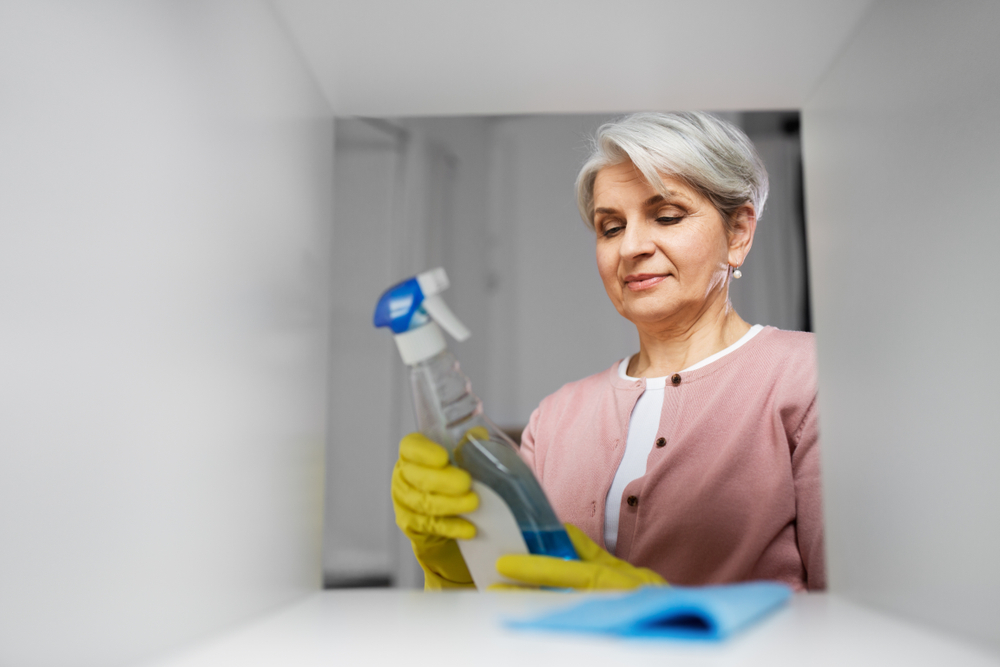Get a Free Estimate
Your information will not be shared. Safe Spray will send you a custom estimate.

Since the emergence of the new coronavirus strain that causes COVID-19 in December 2019, other variants have been identified by the WHO. The emergence of these new variants continues to raise the question: With each new variant, are there different things you should do or new disinfectants you should use to keep you and those around you safe?
The National Institute of Allergy and Infectious Diseases defines ‘emerging infectious pathogens’ as those that have recently appeared in a population or have existed for a while but are rapidly increasing in incidence or geographic range. The coronavirus is one such infectious pathogen.
Why New COVID-19 Variants Are Emerging, and What That Means
Variants of a virus occur when there’s a change to the virus’s genetic makeup. Mutations are expected to naturally happen over time, though some viruses will take more time to mutate than others. Some new variants emerge and persist, while some disappear with time. Mutations of a virus typically occur due to various factors, including geographical differences. This is why over time, multiple variants of the coronavirus that are different from the initial strain detected in China have been identified in different parts of the world during this global pandemic.
With each discovery of a new variant comes the possibility that it may affect the spread, treatment, and prevention of COVID-19. New variants of the coronavirus have been observed to spread more quickly and easily than earlier versions of the virus. This could mean more COVID-19 cases, more hospitalizations putting a strain on the health care sector, and possibly more deaths.
Do Disinfectants Kill Newer Strains of the Coronavirus?
At the onset of the pandemic, WHO advised that the regular washing of hands and cleaning surfaces using surface virucidal disinfectants with at least 70% of ethanol and 0.05% of sodium hypochlorite would suffice to eliminate the virus. But with the emergence of new strains of the virus, the efficacy of household disinfectants is being questioned.
EPA-Registered Disinfectants
Since the occurrence of emerging viral pathogens is unpredictable and less frequent than the occurrence of established pathogens, very few EPA-registered disinfectants specify use against emerging infectious pathogens when they first occur. The emerging viral pathogen claim helps us determine which disinfectants will work against new pathogens quickly without being delayed by acquiring and testing the outbreak variant. In 2016, the EPA provided a two-stage process to allow the use of certain EPA-registered disinfectants against emerging viral pathogens not identified on the product’s label.
The EPA List N
In March 2020, the EPA introduced List N: Disinfectants for the Coronavirus (COVID-19). List N contains more than 500 products that meet one of these three criteria. All products are proven to be effective against:
- The coronavirus SARS-CoV-2
- A varying human coronavirus that’s similar to SARS-CoV-2
- A pathogen that is harder to kill than SARS-CoV-2
This means that genetic changes or mutations of the virus don’t impact the efficacy of the disinfectants when it comes to killing the virus.
Are You Looking for Disinfecting Solutions?
At Safe Spray, we provide disinfecting services to help keep your environment clean. All the products we use have the emerging pathogen claim to ensure that you remain safe from the coronavirus throughout the pandemic period.
Reach out to us at (855) 777-2987 and let us meet all your disinfecting needs.

Get Your Free Quote Today!
We also offer a no obligation, free onsite service estimate.

 Get a free Consultation
Get a free Consultation
